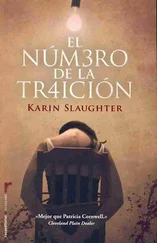“With Lev and Papa. They live there with Mary. My mother passed away when I was three.”
“Who’s Mary?”
“My oldest sister.”
“Older than Lev?”
“Oh, no, Lev’s the oldest child. There’s Mary next, then Rachel, then Paul, then me.”
“That’s quite a family,” Lena said, thinking their mother must have died from exhaustion.
“Papa grew up an only child. He wanted lots of children around him.”
“Your father owns the farm?”
“The family owns most of it along with some other investors,” Esther replied, opening one of the cabinets and taking down a three-pound bag of sugar. “Papa started it over twenty years ago.”
Lena tried to phrase her question diplomatically. “I thought cooperatives were owned by the workers.”
“All the workers have the opportunity to invest after they’ve been on the farm for two years,” she explained, measuring out a cup of sugar.
“Where do these workers come from?”
“ Atlanta, mostly.” She stirred the lemonade with a wooden spoon to mix the sugar. “Some of them are transients, looking for a few months of solitude. Others want a way of life and decide to stay. We call them ‘souls,’ because they’re very much like lost souls.” A wry smile touched her lips. “I’m not naïve. Some of them are downright hiding from the law. We’ve always been hesitant to involve the police because of this. We want to help them, not hide them, but some are avoiding abusive spouses or parents. We can’t protect just the ones we agree with. It has to be all or none.”
“Involve the police in what?”
“There’ve been thefts in the past,” Esther said, then added, “I know I’ve spoken out of turn, but Lev wouldn’t likely mention this to you. We’re very isolated out here, as you probably noticed, and the local sheriff isn’t too keen to drop everything and come running just because a pitchfork has shown up missing.”
Pelham wouldn’t come running for anything but dinner. “Is that all it’s been? Missing pitchforks?”
“Some shovels have been taken, a couple of wheelbarrows.”
“Any wood?”
She gave Lena a look of confusion. “Well, I don’t know about that. We don’t use much wood on the farm. You mean like stakes? Soybean plants don’t vine.”
“What else has been missing?”
“The petty-cash box was stolen out of the barn about a month ago. There was, I think, around three hundred dollars in it.”
“What’s petty cash kept for?”
“Running to the hardware store, sometimes buying a pizza if folks have been working late. We process the plants here ourselves, which is a lot of repetitive work. Some of the souls we get aren’t highly skilled, but others find themselves bored with it. We move them into other areas of the farm, like deliveries, accounting. Not big accounting, but going through invoices, filing. Our goal is to teach them a useful skill, give them some sense of accomplishment, to take back into their real lives.”
It sounded like a cult to Lena, and her attitude got the better of her when she said, “So, you bring them back from Atlanta and all they have to do in return is say their nightly prayers?”
Esther smiled like she was humoring Lena. “We only ask them to go to services on Sunday. It’s not mandatory. We have fellowship every evening at eight, and they’re welcome then as well. Most of them choose not to attend, and that’s perfectly fine. We don’t require anything but that they obey the rules and behave respectfully toward us and their peers.”
They had gotten way off the point, and Lena tried to steer her back. “Do you work on the farm?”
“Normally, I school the children. Most of the women who come here have kids. I try to help them as much as I can, but again, they’re usually not here for long. Structure is all I can give them.”
“How many people do you have at a time?”
“Around two hundred would be my guess. You can ask Lev about that. I don’t keep up with employment records and such.”
Lena made a mental note to get those records, though she couldn’t keep her mind from flashing on a bunch of young kids being brainwashed into giving up their worldly possessions and joining this weird family. She wondered if Jeffrey was getting the same impression in the other room. “You still school Abby?”
“We talk about literature, mostly. I’m afraid I can’t offer her much beyond the usual high school curriculum. Ephraim and I discussed sending her to a small college, perhaps Tifton or West Georgia, but she wasn’t interested. She loves working at the farm, you see. Her gift is helping others.”
“Have you always done that?” Lena asked. “Homeschooling, I mean.”
“We were all homeschooled. All of us but Lev.” She smiled proudly. “Paul had one of the highest SAT scores in the state when he entered UGA.”
Lena wasn’t interested in Paul’s academic career. “That’s your only job at the farm? Teaching?”
“Oh, no,” she laughed. “Everyone on the farm has to do everything at some time. I started in the fields, just like Becca is doing. Zeke’s a little too young now, but he’ll start in the next few years. Papa believes you have to know every part of the company if you’re going to run it someday. I got stuck in bookkeeping for a while. Unfortunately, I have a talent for numbers. If I had my way, I’d lie around on the couch all day reading. Papa wants us to be ready when something happens to him.”
“You’ll run the farm eventually?”
She laughed again at the suggestion, as if running a company was something a woman couldn’t possibly manage. “Maybe Zeke or one of the boys will. The point is to be ready. It’s also important considering our labor force isn’t particularly motivated to stay. They’re city people, used to a faster way of life. They love it here at first- the quiet, the solitude, the easiness of it compared to their old lives on the street, but then they start to get a little bored, then a lot bored, and before they know it, everything that made them love it here makes them want to run screaming. We try to be selective in our training. You don’t want to spend a season teaching someone to do a specialized job when they’re going to leave in the middle of it and go back to the city.”
“Drugs?” Lena asked.
“Of course,” she said. “But we’re very careful here. You have to earn trust. We don’t allow alcohol or cigarettes on the farm. If you want to go into town, you’re welcome to, but no one is going to give you a ride. We have them sign a behavioral contract the minute they step foot on the place. If they break it, they’re gone. A lot more people than not appreciate that, and the new ones learn from the old-timers that when we say an infraction gets you sent back to Atlanta, we mean it.” Her tone softened. “I know it sounds harsh, but we have to get rid of the bad ones so that the ones who are trying to be good have a chance. Surely, as a law enforcement officer, you understand that.”
“How many people come and go?” Lena asked. “Ballpark, I mean.”
“Oh, I’d say we have about a seventy percent return rate.” Again, she deferred to the men in her family. “You’d have to ask Lev or Paul for an exact percentage. They keep up with the running of things.”
“But you’ve noticed people coming and going?”
“Of course.”
“What about Abby?” Lena asked. “Is she happy here?”
Esther smiled. “I would hope so, but we never make people stay here if they don’t want to.” Lena nodded as if she understood, but Esther felt the need to add, “I know this all may sound odd to you. We’re religious people, but we don’t believe in forcing religion onto others. When you come to the Lord, it must be of your own volition or it means nothing to Him. I can tell from your questions that you’re skeptical about the workings of the farm and my family, but I can assure you we’re simply working for the greater good here. We’re obviously not invested in material needs.” She indicated the house. “What we’re invested in is saving souls.”
Читать дальше












